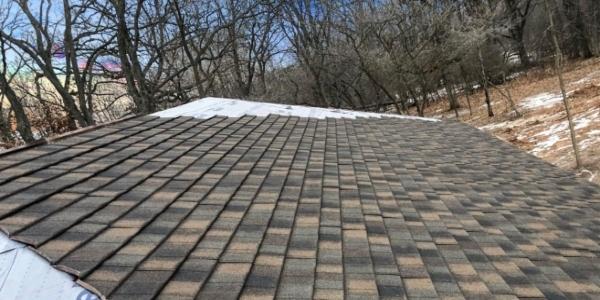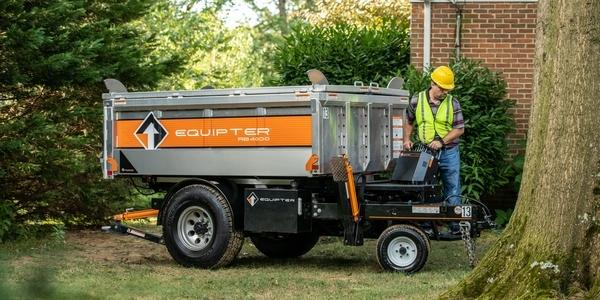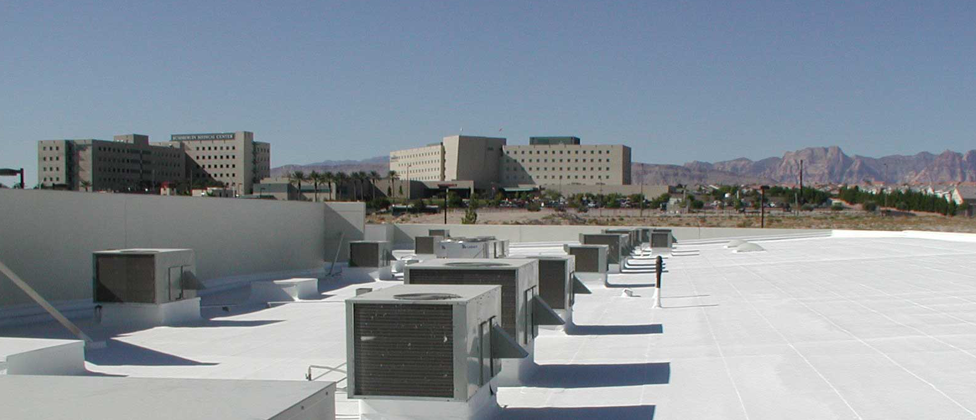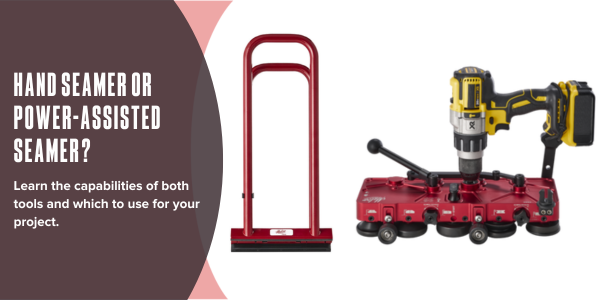Winter Roof Replacements: Metal Roofing vs. Asphalt Shingles

By Trevor Underwood, DECRA Metal Roofing.
Learn about the advantages DECRA Metal Roofing has for homes in colder climates.
Winter is here! And with the colder weather comes the challenge of installing traditional asphalt shingle roofs in temperatures below 40° F. Because asphalt shingle installation and repairs require adhesive products that need the sun’s heat for activation, the window for asphalt shingle repairs and installs in the winter is extremely limited.
Additional challenges of installing asphalt shingles during the winter include:
-
The nature of shingles themselves in low winter temperatures. Asphalt shingles lose flexibility in colder weather, increasing material handling and layout difficulty.
-
Issues cutting asphalt shingles in cold weather. Asphalt shingles cut like hot butter in the summer, but like a block of ice in temperatures below 40° F.
-
Difficulties properly driving nails on the roof with pneumatic guns. Depending on the temperature of the asphalt shingles and the humidity in the cold air, over- or under-driving fasteners is a common problem during the winter months.
-
The sealant on asphalt shingles installed in cold weather does not activate right away. In fact, it may not activate at all until warmer weather returns. In the meantime, winter shingle blow-offs can occur, especially in areas prone to wind uplift.
-
Asphalt shingle manufacturers recommend hand-sealing every shingle to prevent them from lifting due to winter blow-offs. This can add additional labor costs, plus time to the project.
-
Hotboxes are usually required at the job site to keep shingles and adhesives between 100- and 120-degrees F to prevent freezing.
-
Voided warranties. The risk for voided warranties increases when installing asphalt shingles below the manufacturer’s recommended temperature.
“You may end up with a faulty roof if you don’t adhere to these temperature requirements when installing a new roof or replacing an existing one. The risk for voided [shingle] warranties will increase when you try to replace or install the roof when temperatures are below 40° F.” – 4k Exteriors
By adding DECRA Metal Roofing to existing service offerings, contractors can provide a durable, long-lasting roofing option that can be installed year-round – regardless of temperature.
Keep reading to learn how easy it is to install and sell DECRA Metal Roofing products.
Winter roofing made easy with DECRA Metal Roofing
Getting started with DECRA is simple. DECRA panels can be cut with ease in colder climates with the following:
-
Steel roof panel cutter shear.
-
Power saw with a circular blade designed for use with metal roofing, also known as a ‘cool cut’ blade.
-
Tin or aviation snips.
When it comes to adhesives, DECRA products do not rely on sun-activated adhesives (or hand sealing) like traditional asphalt shingles. Our interlocking panels provide a secure, firmly anchored roof. And there’s no need to worry about over- or under-driving nails with a nail gun.
The interlocking panels are installed with a #10 x 1.5” corrosion-resistant fastener with a 1/4” drive hex bolt head. This superior fastener is even approved for use in the high-velocity hurricane zone of Miami-Dade, Florida (when the fastening schedule is followed as outlined in the high-velocity wind install guide), which has some of the strictest building codes and roofing requirements in the nation.
It’s important to note that DECRA products are some of the lightest roofing materials on the market, weighing in at just 1.4 to 1.6 pounds per square foot (that’s less than half the weight of heavy asphalt shingles), making for easier maneuvering of materials when roof decks may be frosty or slippery. Additionally, the lightweight characteristics of a DECRA roof often eliminate the need for a complete tear-off for roofing upgrades and remodels, saving time, labor and waste disposal costs.
DECRA Metal Roofing products aren’t just easy to install, they are also easy to sell. Here are the top-selling points to help educate your customers about DECRA Metal Roofing.
Benefits of DECRA Metal Roofing for homes in colder climates
Engineered to withstand nearly anything Mother Nature has to offer, DECRA Metal Roofing provides both long-term protection and long-term value. Let’s start with protection from the elements.
The way climate and weather patterns impact the roof varies greatly from region to region. While DECRA products have protected homes from tropical Hawaii to blustery Canada and everything in between, homeowners in colder climates typically are looking for a freeze/thaw resistant roof with weight-bearing strength since snow and ice can place extreme loads on the roof deck.
DECRA products are non-porous, making them an ideal roofing solution for winter homes that are exposed to snow and ice as well as repeated freeze and thaw cycles. And, as we’ve already mentioned, DECRA roofs are extremely lightweight, providing strength and protection without unnecessary weight.
Here are some additional benefits of a DECRA Metal roof that resonate well with homeowners in colder climates:
-
Hail: DECRA has the highest possible UL2218 Class 4 impact rating for hail and is one of the most impact-resistant roofing materials available. All of our products are warrantied for hail penetration up to 2.5 inches in diameter.
-
Wind: All DECRA roofing profiles are backed by a warranty for winds up to 120 mph and are lab tested at twice that velocity.
-
Rain: DECRA has performed extensive wind-driven rain testing at speeds up to 110 mph to protect its roofing profiles against water penetration under the most extreme wind conditions.
Another strong selling point of DECRA metal roofs is the long-term (and immediate) value they provide homeowners, including:
-
Longevity: Metal roofs have a lifespan that is two to three times longer than traditional roofing materials like asphalt, tile, and wood.
-
Home value: A metal roof can increase home value by up to 6%.
-
ROI: Homeowners who upgrade to modern metal roofs can recoup up to 85.9% of their investment, according to national averages, with homes in the Eastern states recouping up to 95.5% of the initial roofing cost.
-
Insurance discounts: DECRA metal roofs can qualify for insurance discounts in many states. For example, in Texas, a metal roof can lower homeowner’s insurance by up to 35%. (Check with your local insurance carrier for available discounts).
-
Energy savings: The energy-efficient properties of metal roofing can reduce heating and cooling costs by up to 25%.
-
Lifetime limited warranty: One of the industry’s most comprehensive Lifetime Limited Warranties comes standard on DECRA products and is transferable to a new owner for the first 20 years.
Learn more about the additional benefits of metal roofing and why it’s considered the best choice for all regions and seasons here.
DECRA Metal Roofing for winter installations
In many areas, homeowner demand exceeds the supply of qualified DECRA Metal Roofing installers. By adding DECRA to existing service offerings, contractors can tap into this rapidly growing market, as well as offer homeowners a year-round roofing solution that is ideal for colder climates.
Ready to get started with DECRA? Join the DECRA Contractor Network and Directory.
Learn more about DECRA in their RoofersCoffeeShop® Directory or visit DECRA.com.
Original article source: DECRA




















Comments
Leave a Reply
Have an account? Login to leave a comment!
Sign In